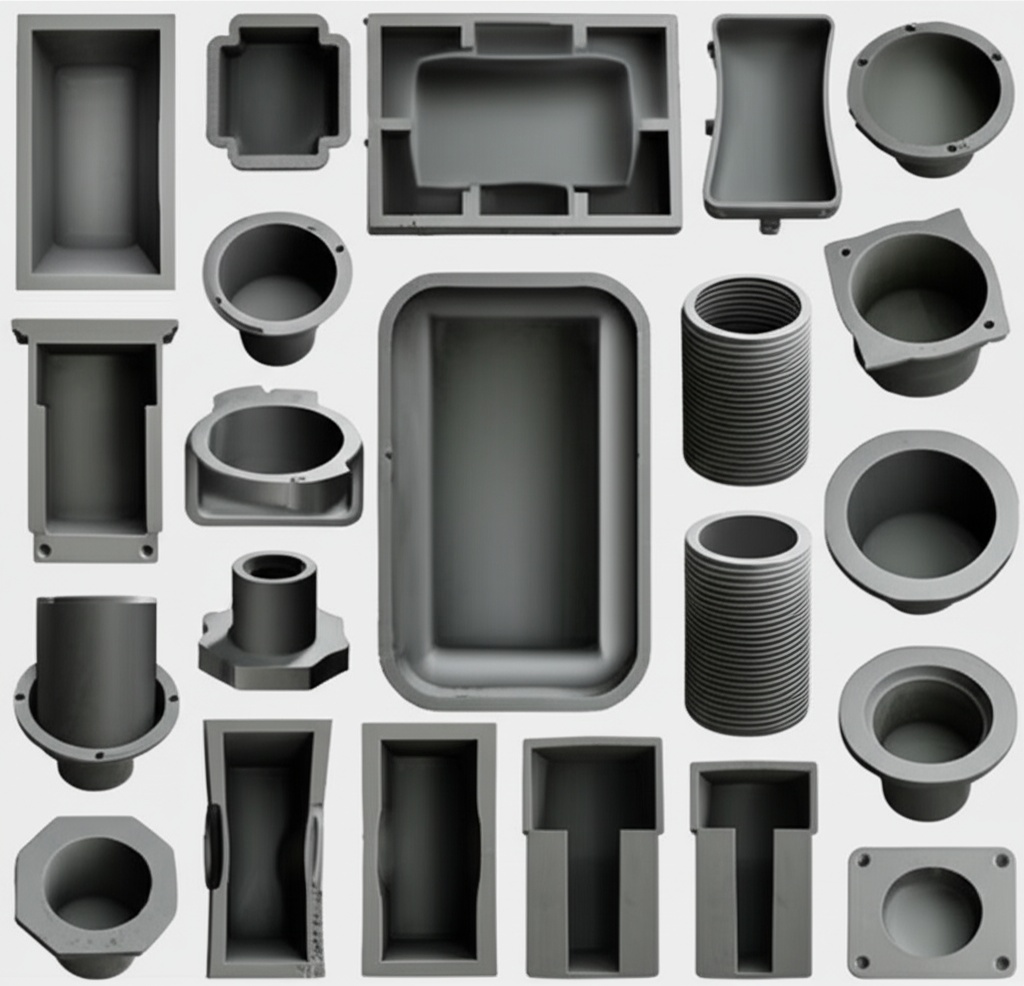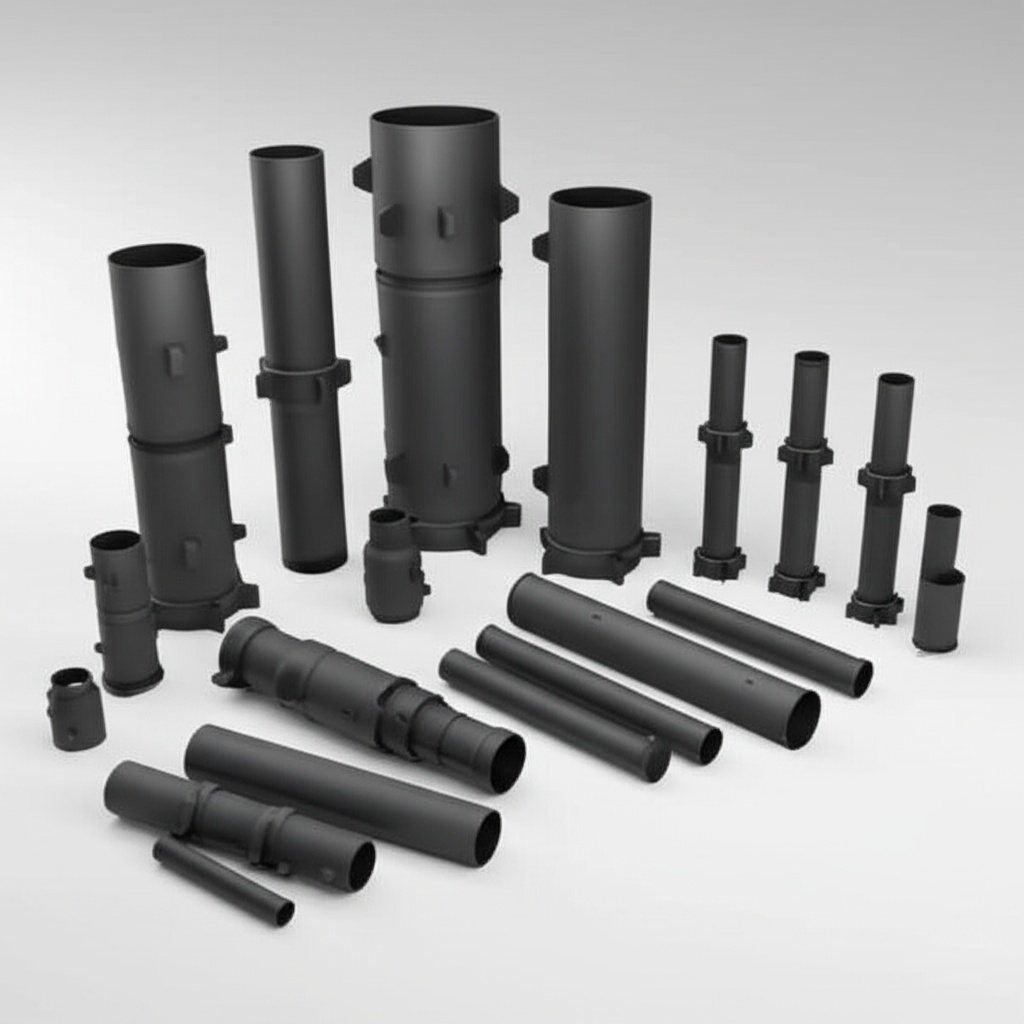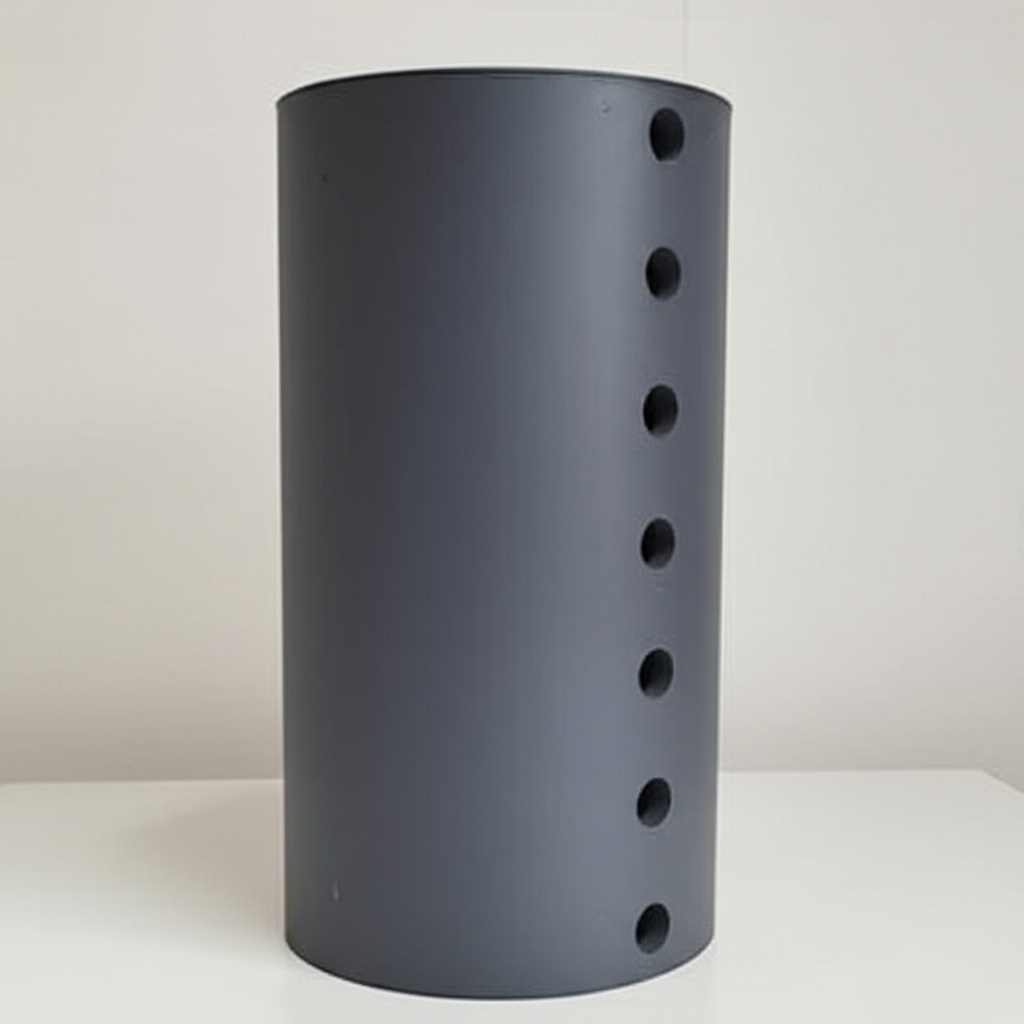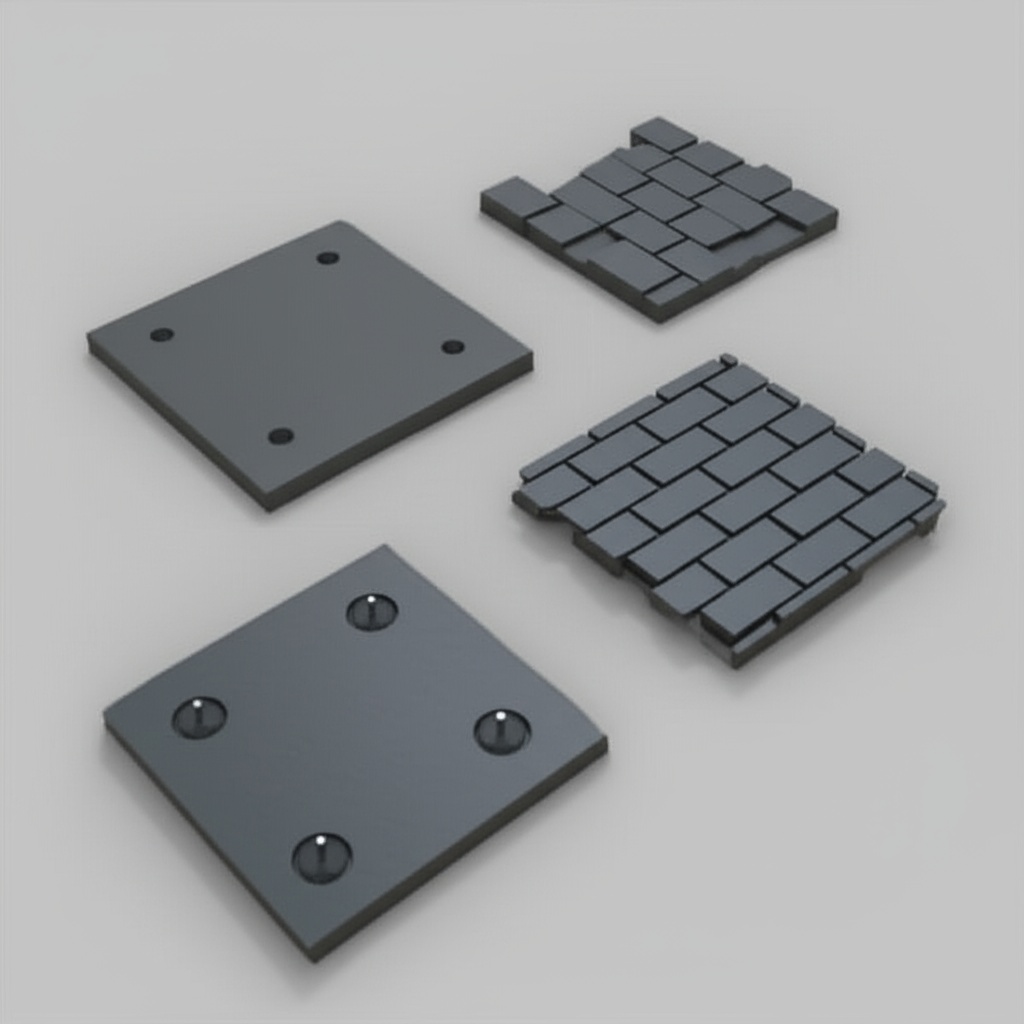Leading SiC Producers and Their Output in Chile

Share
Leading SiC Producers and Their Output in Chile
In the rapidly evolving landscape of advanced materials, silicon carbide (SiC) stands out as a critical component for industries demanding exceptional performance under extreme conditions. From the scorching heat of high-temperature furnaces to the intricate circuits of power electronics, custom silicon carbide products are revolutionizing how engineers design and procurement managers source materials. While global supply chains are diverse, this blog post will focus on the pivotal role of SiC, particularly highlighting producers and the critical aspects of sourcing high-quality custom SiC solutions for B2B applications.
What Are Custom Silicon Carbide Products?
Custom silicon carbide products are engineered components manufactured to precise specifications, leveraging the unique properties of SiC. As a technical ceramic, SiC offers an unparalleled combination of attributes:
- Extreme Hardness: Second only to diamond, making it ideal for wear-resistant applications.
- High Thermal Conductivity: Efficiently dissipates heat, crucial for power electronics and high-temperature processing.
- Excellent Thermal Shock Resistance: Withstands rapid temperature changes without cracking.
- Chemical Inertness: Resistant to most acids, alkalis, and molten metals, vital for chemical processing and metallurgy.
- High-Temperature Strength: Retains mechanical integrity at temperatures exceeding 1,500°C.
- Semiconductor Properties: Crucial for next-generation power devices due to its wide bandgap.
These properties make custom SiC components indispensable for OEMs and industrial buyers seeking long-lasting, high-performance solutions in demanding environments.
Main Applications of SiC Across Industries
The versatility of silicon carbide drives its adoption across a multitude of industries, addressing complex engineering challenges. For industrial buyers and technical procurement professionals, understanding these applications is key to identifying the right SiC solutions.
| Industry | Key SiC Applications | Benefits for Industrial Buyers |
|---|---|---|
| Semiconductor Manufacturing | Wafer processing equipment, SiC wafers for power devices (diodes, MOSFETs, IGBTs), susceptors, furnace components. | Enhanced efficiency, higher power density, reduced energy loss, longer lifespan of equipment. |
| Automotive Companies | EV inverters, on-board chargers, DC-DC converters, brake rotors, wear parts. | Improved electric vehicle range, faster charging, reduced weight, superior braking performance. |
| Aerospace Companies | High-temperature engine components, thermal protection systems, rocket nozzles, mirrors for space telescopes. | Lightweight, high strength-to-weight ratio, extreme temperature resistance, enhanced reliability in harsh environments. |
| Power Electronics Manufacturers | High-voltage switches, power modules, rectifiers, inverters for grid infrastructure. | Higher switching frequencies, smaller footprint, lower cooling requirements, increased power conversion efficiency. |
| Renewable Energy Companies | Solar inverters, wind turbine converters, energy storage systems. | Improved efficiency of power conversion, greater energy yield, reduced system size and cost. |
| Metallurgical Companies | Furnace linings, crucibles, heat exchangers, refractory components. | Exceptional wear and corrosion resistance, extended furnace life, reduced maintenance. |
| Defense Contractors | Armor plating, ballistic protection, lightweight structural components, missile nose cones. | Superior hardness, lightweighting for improved mobility, enhanced protective capabilities. |
| Chemical Processing Companies | Pump seals, valve components, heat exchangers, chemical reactor linings. | Outstanding chemical inertness, high temperature stability, reduced downtime from corrosion. |
| LED Manufacturers | Substrates for GaN epitaxial growth, heat sinks. | Improved LED efficiency, better heat dissipation, enhanced device longevity. |
| Industrial Equipment Manufacturers | Bearings, seals, nozzles, wear plates, grinding media. | Extended equipment lifespan, reduced friction, improved performance in abrasive environments. |
Why Choose Custom Silicon Carbide?
While standard materials offer some benefits, custom silicon carbide manufacturing provides distinct advantages for applications with unique performance requirements. Custom SiC solutions allow for:
- Tailored Properties: Specific grades and compositions can be selected or developed to optimize thermal resistance, wear resistance, chemical inertness, or electrical properties for a precise application.
- Optimized Geometries: Complex shapes and intricate designs can be produced to fit exact component dimensions, often reducing the need for assembly or secondary operations.
- Enhanced Performance: Components are designed to maximize efficiency and longevity in their specific operating environment, leading to superior overall system performance.
- Cost-Effectiveness in the Long Run: While initial investment might be higher, the extended lifespan, reduced maintenance, and improved operational efficiency often result in significant long-term savings for wholesale buyers and OEMs.
Recommended SiC Grades and Compositions
The performance of SiC components heavily depends on the specific grade and manufacturing process. Understanding these variations is crucial for technical buyers when specifying requirements:
- Reaction-Bonded SiC (RBSC): Known for excellent oxidation resistance, high strength, and good thermal shock properties. It’s often used for large, complex shapes like furnace components and kiln furniture.
- Sintered SiC (SSiC): Offers superior hardness, corrosion resistance, and high purity. Ideal for applications requiring extreme wear resistance, such as mechanical seals, bearings, and pump components.
- Nitride-Bonded SiC (NBSC): Provides a good balance of mechanical strength, thermal shock resistance, and chemical inertness. Commonly used in aluminum processing and as refractory materials.
- Chemical Vapor Deposited (CVD) SiC: Produces ultra-high purity, dense, and impermeable SiC, making it suitable for semiconductor equipment, optics, and extreme environments.
Choosing the right grade is paramount for optimal performance and cost-efficiency in any industrial application.
Design Considerations for SiC Products
Designing for manufacturability (DFM) is critical for custom silicon carbide products due to their inherent hardness and brittle nature. Engineers must consider:
- Geometry Limits: Avoid sharp internal corners, thin walls (generally less than 1mm), and sudden changes in cross-section to minimize stress concentrations.
- Wall Thickness: Consistent wall thickness is preferred to ensure uniform shrinkage during sintering and prevent warpage or cracking.
- Stress Points: Identify potential stress concentrators during design and operation, and incorporate generous radii to reduce stress.
- Tapping and Threading: Machining threads in SiC can be challenging. Consider designing for inserts or alternative fastening methods.
- Prototyping: For complex designs, prototyping using alternative materials or smaller scales can save significant costs and time.
Tolerance, Surface Finish & Dimensional Accuracy
Achieving tight tolerances and specific surface finishes with SiC requires advanced machining capabilities, typically through diamond grinding. For precision SiC components:
- Achievable Tolerances: Standard machining can achieve tolerances of ±0.05mm to ±0.1mm. For critical applications, grinding can achieve ±0.01mm or better.
- Surface Finish Options: Rough grinding, fine grinding, lapping, and polishing are available. Lapping and polishing can achieve surface roughness (Ra) values below 0.1 μm for sealing and optical applications.
- Dimensional Accuracy: High dimensional accuracy is achievable, particularly with post-sintering grinding and lapping. This is vital for components like mechanical seals and semiconductor fixtures.
Post-Processing Needs
After initial manufacturing, custom SiC components may undergo various post-processing steps to enhance their performance or meet specific application requirements:
- Grinding and Lapping: Essential for achieving precise dimensions, flatness, parallelism, and fine surface finishes.
- Polishing: Used for optical applications, critical sealing surfaces, or where extreme smoothness is required.
- Sealing/Impregnation: For certain porous SiC grades, impregnation with silicon or other materials can improve impermeability.
- Coating: Applying specialized coatings (e.g., thermal barrier coatings, anti-corrosion coatings) can further enhance specific properties or extend lifespan.
- Inspection: Rigorous quality control, including non-destructive testing (NDT) like ultrasonic inspection, is vital to ensure component integrity.
Common Challenges and How to Overcome Them
Despite its advantages, working with silicon carbide presents certain challenges that industrial manufacturers must address:
- Brittleness: SiC is inherently brittle, making it susceptible to chipping or fracture under impact or tensile stress. Overcome this through careful design (avoiding stress concentrations), proper handling, and robust mounting solutions.
- Machining Complexity: Its extreme hardness makes conventional machining difficult and expensive. This is mitigated by near-net-shape forming processes (e.g., pressing, slip casting) followed by diamond grinding for final dimensions.
- Thermal Shock Sensitivity (for some grades): While generally good, extreme thermal gradients can cause issues in certain applications. This can be addressed by material selection (e.g., RBSC often has better thermal shock resistance) and controlled heating/cooling rates.
- Cost: The raw material and manufacturing processes for custom SiC can be more expensive than traditional materials. This is offset by the significantly longer service life and superior performance, leading to a lower total cost of ownership for industrial applications.
How to Choose the Right SiC Supplier
Selecting a reliable supplier for custom silicon carbide components is paramount for ensuring quality, consistency, and timely delivery. Procurement managers should consider:
- Technical Capabilities: Does the supplier have expertise in various SiC grades, advanced machining, and post-processing? Inquire about their R&D capabilities and engineering support.
- Material Options: Do they offer the specific SiC grades (e.g., SSiC, RBSC, NBSC, CVD SiC) and compositions required for your application?
- Certifications and Quality Control: Look for ISO certifications (e.g., ISO 9001) and robust quality assurance processes, including material testing and dimensional inspection.
- Experience and Track Record: A supplier with a proven history in your industry (e.g., semiconductor, aerospace, power electronics) is often a better choice. Request case studies or references.
- Customization Support: Do they offer design assistance and work collaboratively to optimize your component for SiC manufacturing?
- Supply Chain Stability: Especially for large-scale production, understand their capacity, lead times, and ability to manage fluctuations in demand.
When it comes to sourcing high-quality custom silicon carbide parts, it’s worth noting the global hub of innovation and manufacturing. Weifang City, China, is home to over 40 silicon carbide production enterprises, collectively accounting for more than 80% of the nation’s total silicon carbide output. This concentration of expertise signifies a mature and highly developed ecosystem for SiC manufacturing.
We, Sicarb Tech, have been at the forefront of this industrial growth since 2015. We’ve been instrumental in introducing and implementing advanced silicon carbide production technology, assisting local enterprises in achieving large-scale production and significant technological advancements. Our journey has been intertwined with the emergence and ongoing development of this vital industry, making us a witness to its evolution and a key contributor to its success.
Sicarb Tech is a proud part of Chinese Academy of Sciences(Weifang) Innovation Park, an entrepreneurial hub that closely collaborates with the National Technology Transfer Center of the Chinese Academy of Sciences . This platform integrates innovation, entrepreneurship, technology transfer, venture capital, incubation, and scientific services, leveraging the robust scientific and technological capabilities and talent pool of CAS. We serve as a crucial bridge, facilitating the integration and commercialization of scientific and technological achievements, ensuring more reliable quality and supply assurance within China. Our domestic top-tier professional team specializes in customized production of silicon carbide products. With our support, over 519 local enterprises have benefited from our technologies, encompassing material, process, design, measurement, and evaluation expertise. This integrated approach from materials to finished products enables us to meet diverse customization needs, offering you higher-quality, cost-competitive customized silicon carbide components in China. We are confident that you will find our products and services to be of the highest standard. Visit our cases page to see examples of our work, or learn more about our technology transfer services if you’re looking to establish your own specialized factory.
Furthermore, if you are considering establishing a professional silicon carbide products manufacturing plant in your country, Sicarb Tech can provide comprehensive technology transfer for professional silicon carbide production. We offer a full range of services, including factory design, procurement of specialized equipment, installation and commissioning, and trial production – a true turnkey project. This ensures a more effective investment, reliable technology transformation, and a guaranteed input-output ratio for your venture. Feel free to contact us to discuss your specific needs.
Cost Drivers and Lead Time Considerations
The cost and lead time for custom silicon carbide components are influenced by several factors:
- Material Grade: Sintered SiC (SSiC) and CVD SiC generally have higher material costs due to their purity and manufacturing complexity.
- Component Complexity: Intricate geometries, tight tolerances, and fine surface finishes require more extensive and precise machining, increasing costs and lead times.
- Volume: Economies of scale apply; larger production volumes typically lead to lower per-unit costs.
- Tooling Costs: For highly custom parts, initial tooling costs (e.g., molds for pressing) can be significant but are amortized over the production run.
- Post-Processing: Extensive grinding, lapping, or polishing adds to both cost and lead time.
- Supplier Location: Global logistics and shipping costs also play a role, making local or strategically located suppliers potentially more cost-effective for certain buyers.
Frequently Asked Questions (FAQ)
Here are some common queries regarding silicon carbide products:
Q1: Is silicon carbide electrically conductive?
A1: While silicon carbide is a semiconductor, its electrical conductivity varies greatly depending on its purity, doping, and specific grade. Some grades are highly resistive and used as insulators, while others are specifically designed for their semiconducting properties in power devices.
Q2: Can custom SiC components withstand corrosive chemicals?
A2: Yes, silicon carbide exhibits exceptional chemical inertness and is highly resistant to most acids, alkalis, and molten metals, making it an excellent choice for chemical processing equipment and metallurgical applications.
Q3: What is the typical lifespan of a custom SiC component compared to traditional materials?
A3: Due to its extreme hardness, wear resistance, and high-temperature stability, custom SiC components often have a significantly longer lifespan (many times over) compared to traditional metals or less advanced ceramics in demanding environments, leading to reduced downtime and replacement costs.
Conclusion
Custom silicon carbide products represent the pinnacle of advanced materials engineering, offering unparalleled performance in the most demanding industrial environments. For engineers, procurement managers, and technical buyers in industries spanning semiconductors to aerospace, investing in high-quality custom SiC components translates directly into enhanced reliability, extended operational life, and superior system performance.
By understanding the different SiC grades, design considerations, and the importance of selecting a capable supplier, businesses can unlock the full potential of this extraordinary material. As the demand for higher efficiency, greater durability, and extreme performance continues to grow, custom silicon carbide will remain a cornerstone of innovation for the future of industrial technology.

About the Author: Sicarb Tech
We provide clear and reliable insights into silicon carbide materials, component manufacturing, application technologies, and global market trends. Our content reflects industry expertise, practical experience, and a commitment to helping readers understand the evolving SiC landscape.




